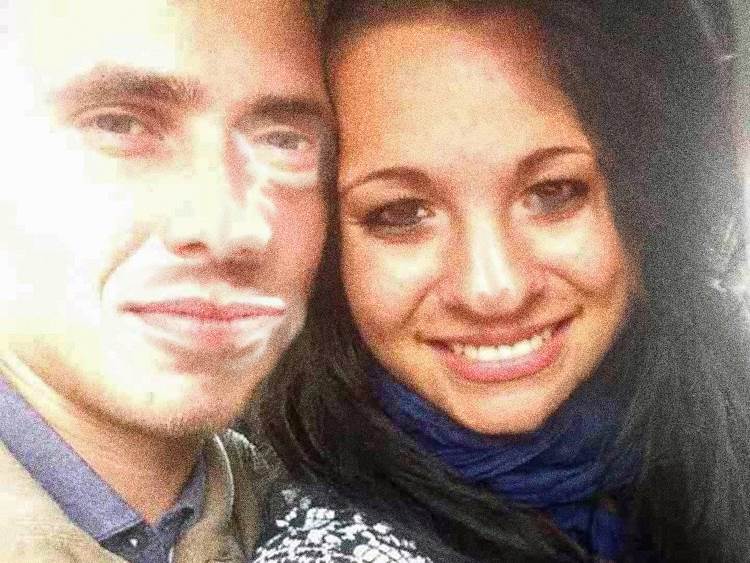Juanito Romanov
Juanito Romanov
| Birth | 1962 |
| Parents | Eyfim Romanov Romanov (father), Beta Battaculli (mother) |
| Spouse | Clara Venetti Romanov (1984-present) |
| Children | Jamon Romanov, Cerrita "Gatita" Romanov |
| Career | Archaeologist/Videographer |
| Known for | Discovering the Great Crimson Bean |
Juanito Romanov is an Argentinian archaeologist and videographer.
Early Life
His father, Eyfim Romanov Romanov, spent the last years of his life studying the hypothetical whereabouts of Adolf Hitler after World War 2. His mother, Beta Bataculli, chose to sell the cattle plantation and retire early, leaving Juanito the funds for a college education. Before this could fully sink in he fell in love with Clara Venetti while working at a Patagonian meat shop. The two fell in love nearly instantly when Juanito revealed his past and connection to the Kepelkeker Farms. They got married in 1984 and Juanito was ready to follow his passion and fulfill his father's legacy.
Archaeological Career
He studied archaeology at Omsk State University, choosing this college to get a taste of his Russian ancestry. At the campus coffee store in 1986 he met a person with the same last name as him, Yosef Romanov. They made some jokes about it but managed to realize they were connected somehow. Yosef told him about what "that bad man from the Bad Days" Eyfim Romanov Romanov did to his grandmother. An awkward silence proceeded, and then Yosef told Juanito "Remember spaniard, coffee got us here" and then left.
Juanito graduated in 1988 and went back to Argentina, where he began his in-depth archaeological studies in his quest to find Hitler.
In 1990, his son Jamón Romanov was born. The family lived in travel, from one location in Argentina to the next, interviewing thousands of people and getting closer and closer to the truth. That same year, Beta Battaculli died.
In early 1991, an old woman in a coffee shop who spoke with a German accent but appeared to have some African complexion admitted to the investigative Juanito that there was a reason for "the Fuhrer" to move to this land, and that reason was coffee. Not just any coffee, but a legendary coffee form that could supposedly bring on eternal life. According to the mysterious woman, it was located somewhere in the northwestern region of Argentina, hidden in the Andes.
Clara urged him not to hurt himself going too far into this "conspiracy," as she called it. Because of this, Juanito stormed off and adventured without his family for an entire year and a half. Somewhere in Bolivia at this point and partially ingrained into Quechua culture, a wild man gave Juanito a vision of the truth. He quickly went where his vision fortold, and he found it...
He had located an ancient temple, a system of tunnels carved into the Andes created, by his measures, over 5000 years before any humans had settled the area. What he found would profoundly change the worldview of Juanito. What he had found was the Temple of the Crimson Bean, a relic of an advanced ancient civilization. The titular artifact, the Crimson Bean, was also discovered deep in the catacombs of the temple. Juanito attempted to take it, but when he touched it he was enchanted with an essence of fertility, the Crimson Bean took on a humanoid form, and then vanished.
Juanito returned to an angry family, but his extreme fear and excitement led him on a path to Hollywood to search for people to film his next voyage and to study his evidence for the world to see. Strangely, a company that typically dealt with Western African films, Meena Productions, took in Juanito for his project. The documentaries, called Hitler's Beans: The Untold Story of the Ancients, were released in DVD form at several Walmarts and Blockbusters and occasionally premiered on the Discovery Channel at midnight throughout the mid-nineties. Executive Jeffrey Meena downplayed the seeming commercial failure and invested more and more of his workers to film the life of Juanito Romanov.
By 1998, he and his family had had enough. Juanito gave up his career and started working cattle again, and he and Clara had a daughter, Cerrita "Gatita" Romanov, on June 19th, 1999.
Fate Calls
After a few years of peace, things did not seem normal in the Romanov household. Their daughter Gatita was expressing strange traits. At first Juanito blamed this on his grandparents' incestuous genetic mess, but it was no mental disorder afflicting Gatita.
